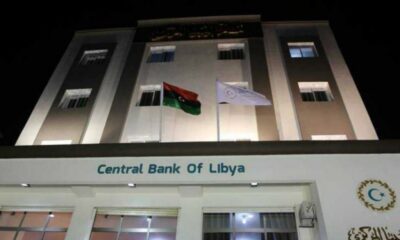After establishing the benchmark in March, Nigerian institutions have begun submitting plans to satisfy the new minimum capital requirements intended to fortify the financial system and bolster economic growth, the central bank announced on Tuesday.
The Central Bank of Nigeria has implemented a new rule requiring commercial banks with foreign authorization to have capital of at least 500 billion naira, or $344,83 million. To reach the new benchmark, more than 20 Nigerian institutions will need to raise additional capital in the next two years.
“Our banks have begun submitting implementation plans for the banking sector recapitalisation programme in compliance with the CBN Circular reviewing the minimum capital requirements for commercial, merchant, and non-interest banks,” central bank spokesperson Hakama Sidi Ali said in a statement on Tuesday.
“The Bank is currently reviewing these plans.”
In recent months, capital-raising initiatives have been made by three of Nigeria’s leading lenders: FBN Holdings, Guaranty Trust Holding Plc, and Access Holding.
Lenders require additional buffers, according to the central bank, particularly in light of the two significant devaluations of the local naira since June of last year. For ten years, the economy has been beset by high inflation and slow growth. In an attempt to stimulate growth, the government has increased prices, raised interest rates, and exacerbated the crisis caused by rising living expenses.
On Tuesday, labour unions called off a walkout sparked by their inability to reach a consensus with the government over a new minimum wage to mitigate the effects of its reforms. Unions have declared that if a pay agreement is not achieved, the strike will return in a week.
Meanwhile, the central bank denied media reports on Tuesday that it was planning to take similar action against three more lenders, following the revocation of unlisted lender Heritage Bank Plc’s license on Monday due to regulatory violations.



































